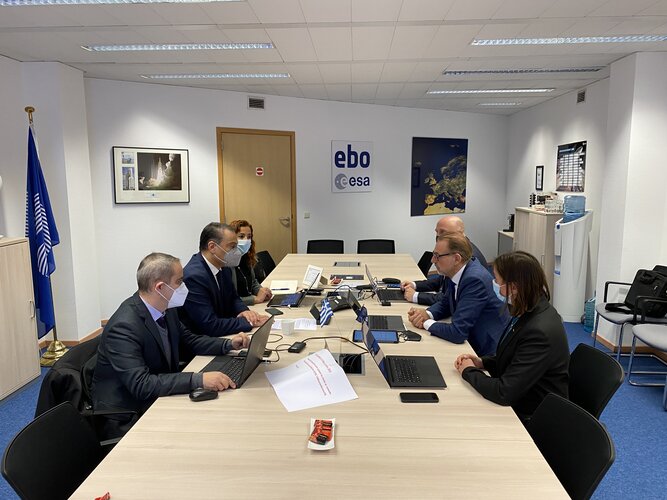On 26 November, the Ministry of Digital Governance in Greece announced the implementation path to materialise its Greek National Satellite Space Project, with the technical support of ESA.
The project is part of the nation’s Recovery and Resilience Facility plans, which aim to enhance Greece’s capabilities in satellite technologies and applications, and to empower the country to exchange satellite data.
The Greek government is keen to ensure that the country is well positioned to contribute an inter-operable asset to the EU’s Govsatcom programme for secure communications, the proposed European quantum communications infrastructure and the envisaged EU secure space-based communication system. ESA supports plans to create such secure communications networks.
Greece seeks to develop, manufacture, launch and pre-operate small satellites capable of hosting various multipurpose payloads in response to European and national needs for secure connectivity. It wants to expand into telecommunications including quantum communication, video streaming for maritime, urban planning, border surveillance and forest fire monitoring, using national assets, including the optical ground stations at Chelmos, Skinakas and Cholomontas.
These three optical ground stations are due to be used as nodes in the EU’s proposed quantum communications infrastructure, called EuroQCI. ESA has been working with the European Commission to design, develop and deploy the EuroQCI initiative since 2019.
ESA is already helping Greece to realise its space ambitions. In March, ESA set up a business incubation centre based in the Marousi suburb of Athens to support space-related start-up companies to develop their businesses. It aims to support 25 such companies over the next five years.



